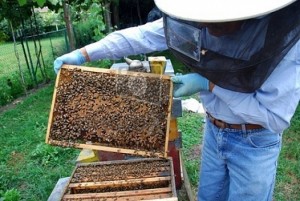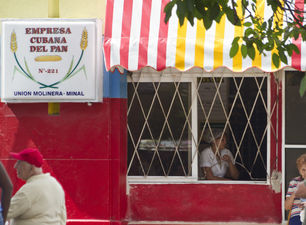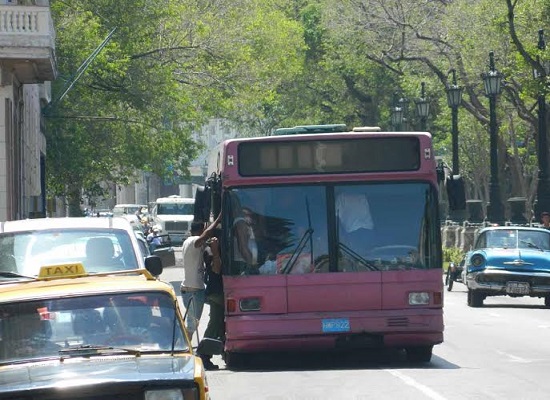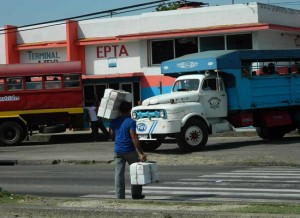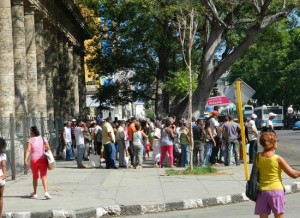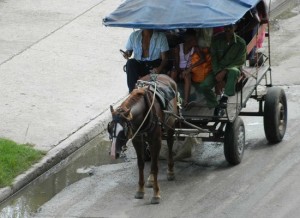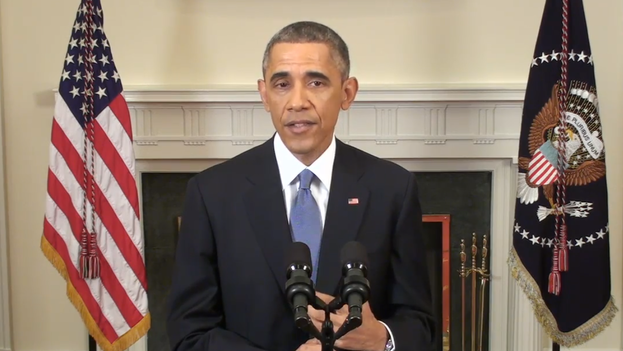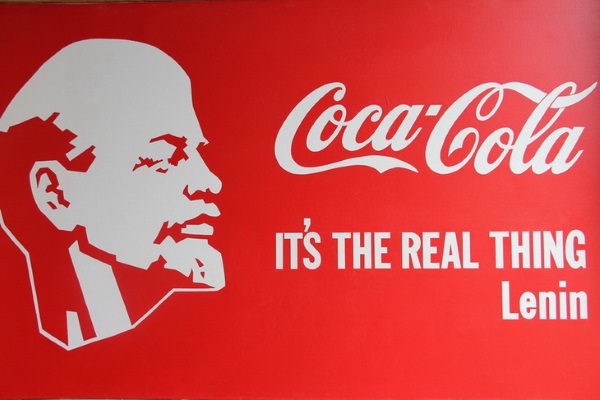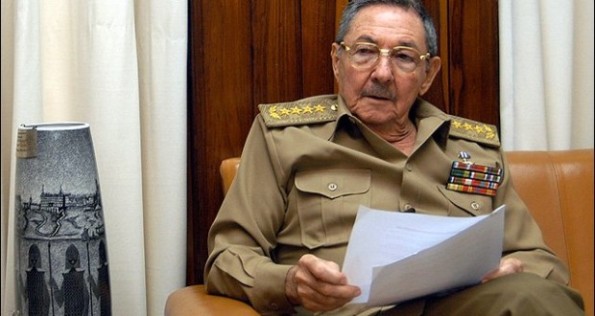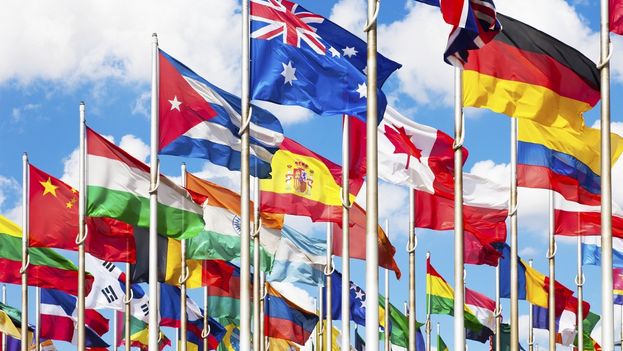of his syntax, which is not sufficiently clear in all of his statements.
In principle, I do not share the preeminence granted by the author to the opposition’s polarization in “two tendencies” following the announcement of the restoration of diplomatic relations between the US and Cuban governments. In any case, whether or not one agrees or disagrees with the proposals of President Barack Obama on the subject of the dialogue established with the Cuban regime, that cannot be the focus of the political aspirations of the civil society, and should be accepted as “the watershed “to define two opposing parties in the opposition: those opposed to the approach and who feel the Cuba-US dialogue will “legitimize” the Cuban regime, and those who understand that this could expand the possibilities of the Civil Society within the Island.
The fact that those who choose to bet on the gradual change and seek the opportunities a new scenario might bring to us have assumed — without prior agreement and without caucusing the subject — a common ethical positioning in key aspects, which can be summarized in two main points: 1. The solution of the Cuban problems and the achievement of democracy concerns only Cubans and does not depend on the will or the policies of any foreign government. 2. We have not disqualified, verbally assaulted, provoked or offended anyone who does not share our views.
We have not disqualified, verbally assaulted, provoked or offended anyone who does not share our views.
That is why we need to appreciate that González Rodiles’s writing has finally realized that “both positions demonstrate our commitment to democracy and the end of totalitarianism”, which infers the disavowal of the discredit of contradictory opinions.
So one thing is to agree or disagree with the negotiations between the two governments and quite another is the subject of Open Space and the Four Points, which exclude consideration to suggest the shortest link between our democratic aspirations and decisions of the US government. Mixing both issues in the same discussion introduces confusion, besides not conforming to reality, which is evident, for example, in statements such as the following: “Obama’s policy is applauded by those joined together in the Open Space, which has several visible elements.”
The truth is that not everyone involved in Open Space “applauds “what the author generically called “Obama’s policy.” Nor is it clear what these so-called “visible elements” are, which only reinforce inaccuracies in the writing. I will take this opportunity to remind you that the Open Space began well before our learning about talks between the governments of the US and Cuba.
In another topic, and strictly political in nature, González Rodiles suggests that those at Open Space who are committed to dialogue, who lend “legitimacy to the regime” do not propose “preconditions for the political process” accept “that the transition process will be (…) in the hands of the actors of the regime, which presupposes that they will be part of the future of the Island” and consider “the democratic changes will come as the evolution of supposed economic transformations” introduced by the regime itself under the pressure of measures proposed by the US government.
Obviously, such a position ignores the experiences of other transitions, which have been successful precisely because they have been conducted in a peaceful and civilized manner within the existing social order, based on dialogue and negotiations with elements of the very regimes in power. Such is the case of the exemplary Spanish transition that owes so much to Adolfo Suárez; the transition in Poland, which brought to the negotiating table Solidarity, the powerful opposition syndicate and other actors of the Civil Society, in addition to Wojciech Jaruzelski; or the Chilean transition which allowed for its dictator, Augusto Pinochet, to remain as permanent senator, just to name only the best known examples.
Other transitions have been successful because they were conducted in a peaceful and civilized manner within the existing social order
Achieving peace through political negotiation is not only less traumatic, but also achieves more permanent effects, though it unavoidably involves certain concessions, and offers certain guarantees that are advantageous for both parties.
The only possible alternative to a negotiated solution is confrontation. But, let’s face it, do the opposition and the Independent Civil Society in Cuba have the strength and sufficient resources to face down a government and force it to relinquish its power? A government that controls the army, the police, and all repressive bodies and economy? Certainly not. In fact, we have not even managed to be included in any of the dialogues that have taken place on the release of political prisoners, despite the critical and always meritorious action of the Ladies in White movement for more than a decade, which, despite its value, has failed, so far, in having people join in their marches or outright reject the repression against them.
It is not only that “the government does not acknowledge us” but about the weakness we display. Because, while the government, with all its totalitarian power, has no real legitimacy because it has not been freely chosen by the “sovereign people,” we have not been chosen as representatives of the people either, since, for whatever reason, we have failed to lay a solid foundation among Cubans, therefore we have no summoning power. In whose “sovereign people’s” name would we be acting, especially when they are trying to deny our capabilities?
“Human rights and the promotion of democracy, as primary objectives, should not be masked by other elements. They must be shown especially to the Cuban people, confused after 57 years of dictatorship, so they can decide in what direction they want to take this country.” (Underlined as emphasis by this writer.) This assertion by González Rodiles rules out that the possibility to economically prosper is one of those human rights and is also one of the most expedient to empower Cubans and promote their conversion into independent subjects of the State-Party-Government, and it is contained in one of the United Nations Covenants whose demand for government ratification almost all of civil society has subscribed to. By the way, raising a formal complaint to the Government, presented to the National Assembly, isn’t that also a way of legitimizing the regime?
But, continuing with the author’s statement –- numerically incorrect, since Cuba has already endured 63 years of dictatorship — the core messianic vision to be taught is that it is essential to teach what one should know (because, obviously, he does not know) to these “confused” peoples, who are unable to choose their destiny for themselves and are, therefore, condemned to the possibility that some individual, touched by a kind of divine wisdom, will guide them in the right direction, as F. Castro was able to do in his day. Ergo, the immature people of this country need a new messiah… one in whom we can supposedly be able to and should trust. In that sense, it is reassuring that the Roadmap states: “We will not join the construction of a new authoritarianism”. It is a real relief; I know that neither will we, the ones of Open Space.
It is true that Four Points favors the benefits to be derived from “alleged economic transformations,” but considers them as a potential tool for strengthening an emerging civil society which would add players — not necessarily politically active subjects — to the process of change. Those of us who had the opportunity to speak face-to-face with Roberta Jacobson during her recent stay in Havana expressed our interest in promoting, concurrent with the plans for economic empowerment of Cubans, mechanisms that will allow exercising our human rights, such as freedom of the press, of expression, of information and of association, all essential instruments of democracy which must be placed in everyone’s reach.
We are facing a dilemma that makes us choose between blindness and pragmatism; between belligerence as an end in itself or the lucidity to drive change
But today we are facing a dilemma that makes us choose between blindness and pragmatism; between belligerence as an end in itself or the lucidity to take any of the routes that could be opened to drive change, even if it meant deliberating with our adversaries. This is how politics functions, which is not an exact science but social, so it is based on a rational choice in which all players must replace any preferences or personal interests with the interests of the nation and of Cubans in general.
One of the Four Points includes the claim of “free, democratic and competitive elections” and “recognition of the legitimacy of the independent Cuban civil society within the Island and in the diaspora as a valid spokesperson” so that the charge of “ambiguity “or “lack of transparency” that we have been accused of is, at least, futile.
If politics, in its most succinct definition, is the art of turning the possible into reality, how to achieve a social contract where we are recognized, when there are factions among us particularly interested in preventing any possible consensus, however small? How will our enemies not disqualify us if, within the ranks of the civil society there are elements that refuse to recognize the “others”? What does González Rodiles mean by “discuss with complete clarity,” “serious and direct debate,” “maturation of the actors and the political scene” or the need for “certain political trust among stakeholders” when, in fact, he himself refuses to participate in meetings where he presupposes that there is a conspiracy against him? Conspiracy that, in addition, already reached international borders, since it suggests that US authorities “give preference” to those who approve of its new policy of non-confrontation and exclude those who do not share in it. I call here for restraint and modesty.
It would be extremely extensive to exhaust in a single article all easily refuted topics in González Rodiles’s speech, so I prefer to wrap up by commenting on a criticism about Four Points which turns amphibological; i.e. that the same could be applied to his Roadmap. This is the supposed sin of not tracing a “methodology” “to achieve one’s goals.” For some reason, he did not understand that Four Points is not exactly an itinerary or an agreement document, but a consensus position which we hope will help us advance the delicate path of future councils.
But the truth is that the strategy with which the Roadmap is expected to reach was not exposed either, which in itself is inconsistent, even with the title of the document. What will be the next stop or destination of that Map? Peccadillo.
I don’t mean to wear myself out in a sterile confrontation; there is too much work to do. When González Rodiles proposed “To speak with one voice” perhaps I was thinking something like “Speaking with my voice,” which is not bad, as long as he doesn’t intend to possess the gift of absolute truth to save us all. The effort is appreciated, but, personally, I decline such a legacy. Following the musical analogy he proposed, I already belong to a larger orchestra, fortunately dissonant, called Cuba.
Translated by Norma Whiting
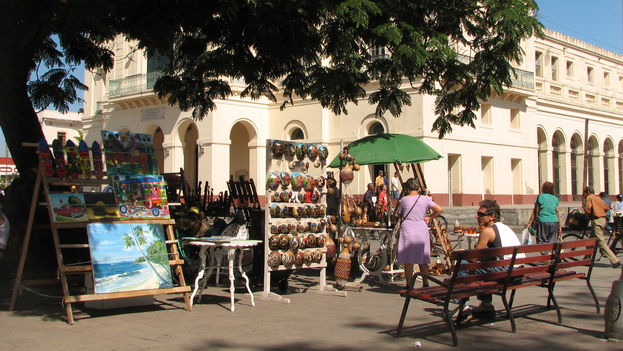
![]() 14ymedio, Miami, 13 February 2015 – The US State Department published new details on its website on Friday about the goods and services that US citizens may import from Cuba. The list includes articles such as perfumes, soaps, candles, photographs, jewelry and crafts, including wood, some metals, hide, plastic or rubber, textiles, shows, ceramic and glass, among others.
14ymedio, Miami, 13 February 2015 – The US State Department published new details on its website on Friday about the goods and services that US citizens may import from Cuba. The list includes articles such as perfumes, soaps, candles, photographs, jewelry and crafts, including wood, some metals, hide, plastic or rubber, textiles, shows, ceramic and glass, among others.


